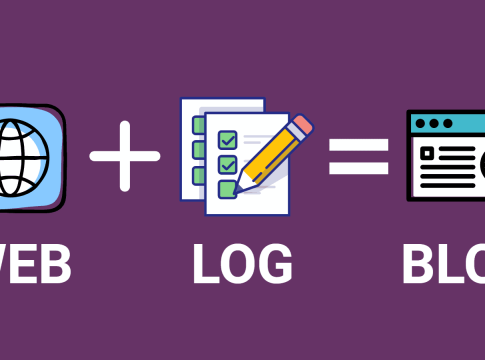The word “blog” is a shortened version of the term “weblog.” A blog is a type of website that’s regularly updated and maintained by an individual or group. These updates come in the form of entries, which can include text, descriptions, commentaries, images, or even audio and video. These entries are typically displayed in reverse chronological order, with the most recent post appearing first.
The term “blog” is flexible and can also be used as a verb, meaning the act of adding new content to or maintaining a weblog.
A Diverse Landscape of Voices and Ideas
Blogs offer a dynamic and ever-expanding source of information and perspectives on a vast array of topics. Whether you’re interested in the latest tech gadgets, historical deep dives, travelogues from exotic destinations, or niche hobbies, there’s a blog out there catering to your specific interests.
This variety extends beyond just content. Blogs can cater to different learning styles. Some offer in-depth analysis of complex subjects, while others provide easily digestible listicles or creative infographics. This makes them a valuable resource for students, researchers, and casual readers alike.

Beyond Text: A Multimedia Experience
One of the strengths of blogs is their multimedia nature. They can combine various media formats like text, images, web pages, and videos to create a richer and more engaging experience for readers. Imagine a travel blog that not only describes a breathtaking hike but also includes stunning photographs and even a short video showcasing the panoramic views from the summit. This immersive approach allows readers to feel more connected to the content and the blogger’s experiences.
Building Communities and Fostering Engagement
Many blogs also have interactive features, such as comment sections and forums, that allow readers to share their own thoughts and opinions, fostering a sense of community. This two-way communication can be incredibly valuable. It allows bloggers to connect with their audience on a deeper level, gauge reader interest in specific topics, and even incorporate feedback into future content. Readers benefit from the ability to engage in discussions, learn from other viewpoints, and potentially even build relationships with like-minded individuals.
The Rise of Citizen Journalism and the Question of Credibility
Blogging has become a popular form of self-expression, allowing individuals to share their unique perspectives and experiences with the world. It has even evolved into a platform for participatory journalism, thanks to its wide reach and interactive nature. Citizen journalists can use blogs to report on local events, share underreported stories, and provide alternative viewpoints on current affairs.
However, the ease of creating and publishing content on blogs has also led to concerns about the accuracy and quality of the information they contain. Unlike traditional news outlets, blogs often lack editorial oversight, which can mean a lack of fact-checking and verification. This is why it’s important for readers to be critical consumers of information and to evaluate the credibility of blogs they encounter. Some helpful indicators include the author’s background and expertise on the topic, the use of citations and sources, and the overall tone and style of the writing.
By staying informed about these issues, readers can navigate the blogosphere effectively and reap the many benefits that blogs offer.
